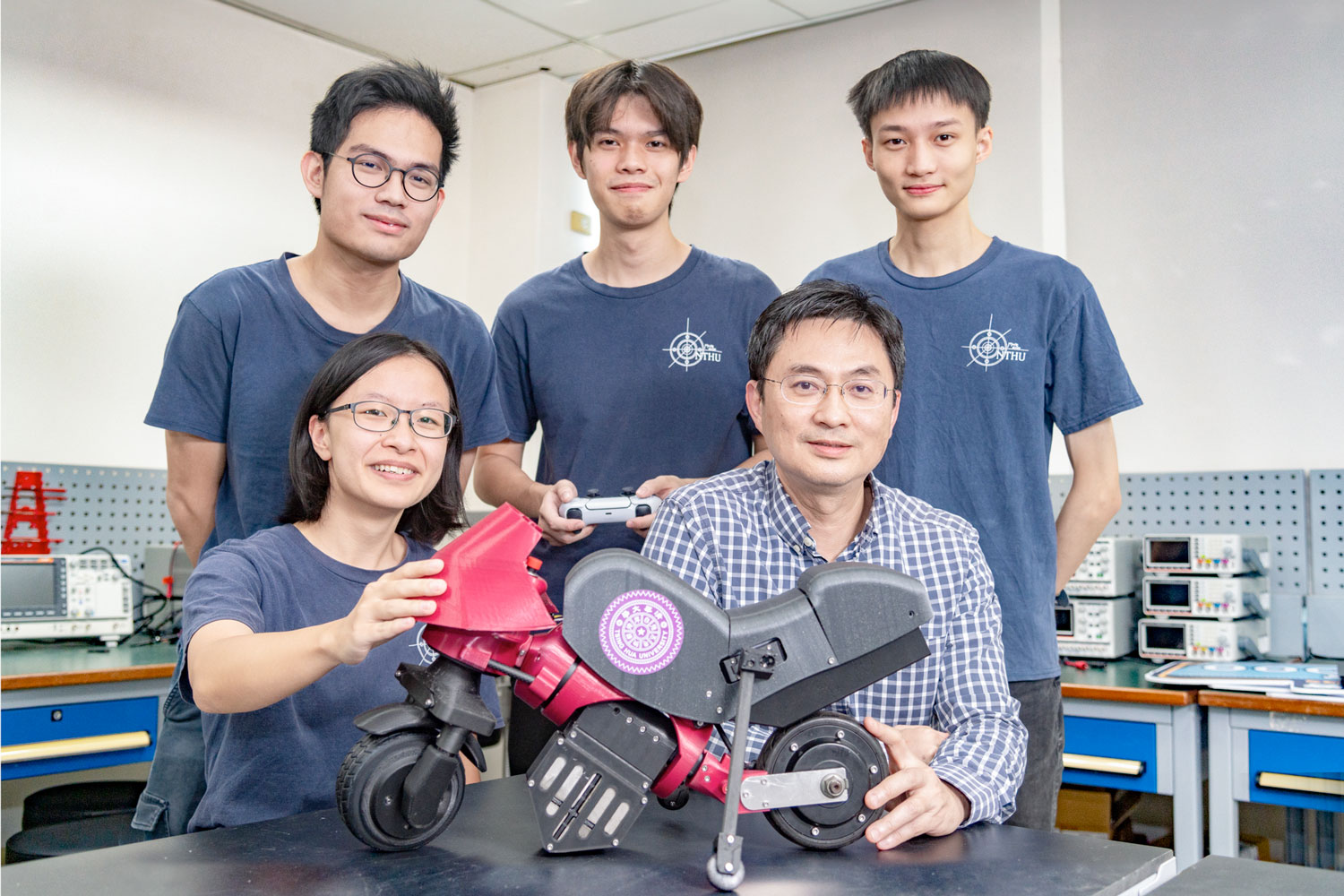With over 14 million motorcycles, Taiwan has the highest motorcycle density in the world, fueling the demand for safer rides. At National Tsing Hua University (NTHU) in Taiwan, a team of students led by Professor Ting-Jen Yeh from the Department of Power Mechanical Engineering (PME) has developed a self-balancing motorcycle using AI and 3D printing.
The four students Yu-Fen Chen, Chen-Yu Peng, Wei-Shan Lee and Yung Tai produced a scaled-down prototype model of the motorcycle using 3D printing technology over the course of two semesters. They used carbon fiber nylon and plastic components to make the dream of “AI-assisted driving” a reality.
The motorcycle is characterized by its stability when stationary, at low speeds and during reverse manoeuvres and can also be controlled autonomously by remote control. The students used machine learning to optimize the control of the motorcycle with two steering axles to enable self-balancing. Yu-Fen Chen explained that sensors were installed in the center of the motorcycle as well as a counterweight underneath the frame. These sensors detect tilt angles up to 1333 times per second, with a microcomputer processing the signals in real time to control the rear steering motor.
The students also optimized the weight of the bike. Chen-Yu Peng explained that they moved the original 0.6 kg battery from the rear to the center of the frame and integrated it into the counterweight block to achieve an efficient and energy-saving balance.
The project, which won first prize in the “Intelligent Robots” category of a competition organized by the Ministry of Economic Affairs, demonstrates the potential of 3D printing and AI in the development of pioneering mobility solutions. The students plan to continue their work by integrating sensors and navigation technologies such as LiDAR and cameras to allow the motorcycle to navigate autonomously through obstacles. This project is not only proof of the students’ innovative strength, but also a step towards safer and smarter two-wheeled mobility for the future.
Subscribe to our Newsletter
3DPresso is a weekly newsletter that links to the most exciting global stories from the 3D printing and additive manufacturing industry.






















